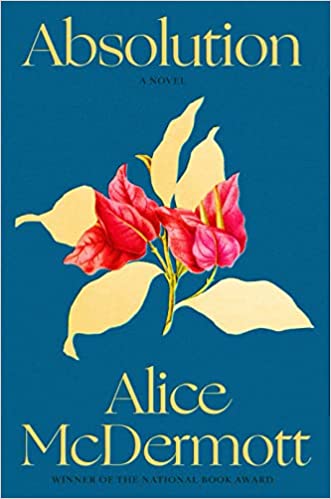On Sunday, I attended a reading at Politics & Prose by Sarah Blake, author of The Postmistress. I haven't read The Postmistress yet, but have read great reviews of it. So I decided to check out Blake's reading, and I am glad I did. (I also got the chance to meet Swapna from S. Krishna's Books and Rebecca from The Book Lady's Blog in real life, which was a treat!)
If you're not familiar with the book, here is a description from Amazon:
Weaving together the stories of three very different women loosely tied
to each other, debut novelist Blake takes readers back and forth
between small town America and war-torn Europe in 1940. Single,
40-year-old postmistress Iris James and young newlywed Emma Trask are
both new arrivals to Franklin, Mass., on Cape Cod. While Iris and Emma
go about their daily lives, they follow American reporter Frankie Bard
on the radio as she delivers powerful and personal accounts from the
London Blitz and elsewhere in Europe. While Trask waits for the return
of her husband—a volunteer doctor stationed in England—James comes
across a letter with valuable information that she chooses to hide.
Blake captures two different worlds—a naïve nation in denial and,
across the ocean, a continent wracked with terror—with a deft sense of
character and plot, and a perfect willingness to take on big, complex
questions, such as the merits of truth and truth-telling in wartime.
Blake read from the first chapter of the book, and it sounds very promising. It's on my TBR list!
Blake opened by saying that The Postmistress is a war novel that takes place off the battlefield. She set it in 1941-1942 because the U.S. wasn't in the war yet at that time, so that she could move back and forth between the two states (being at war and not yet being at war).
Here are some questions she answered at the reading tonight:
Q: What process did you go through to immerse yourself in the period?
A: I backed into writing a novel set in 1941. I came up with the premise (a letter not delivered), and then realized I needed to set it a while back for it to work. At the time, it was just after 9/11, and I was feeling uncertain about where I was. That drew me to 1941. I read contemporary authors – Mary McCarthy, Robert Penn Warren – and watched movies from the era to get the diction right. I spoke to people on Cape Cod in their 90s to get their WWII stories. I also went to the Museum of Radio, where I heard Murrow's narration of a bomb run over Berlin. All of that immediately drew me in.
Q: Your cover features a lovely – but feminine – purple flower. How do you get readers of both genders interested in The Postmistress?
A: It's a war novel, told through womens' stories. I hope that people will try it despite the cover – men like purple flowers too!
Q: Your book ends with certain of the key characters not there. Why?
A: The book opens with Frankie Bard in the present time, when she's in her 80s. She is at a dinner party, where people are saying that the wars of the past were "clearer". Her goal is to disprove that; to tell the war stories she never filed. That is all within her consciousness and ambition. Those characters are not her story.
Q: Some of the post meaningful scenes in the book are the most mundane. How do you do that? How do you create an everyday life scene that become such a clear pictures?
A: I wrote about war in its dailiness. While researching, specific to war, I came across an iconic photo at the end of 2000 of a Palestinian man holding his son in the midst of crossfire. I was trying to imagine and write about the outside of that photo frame, the outside of war's accident. What happens to the people outside the frame who pick up their bag and keep walking when that moment passes? I wanted to understand and recognize that war can be going on at the same moment as these other stories.
Q: Why is the book called "The Postmistress" when it is really Frankie's story?
A: Iris, the postmistress, was fairly sure that as long as there is a god, he walks in the United States Postal Service. There is a great sense of order. She considers herself the postmistress, and Frankie calls her that. But I was interested in the moments for both women when they felt they couldn't bear or tell the news. Both Frankie and Iris became postmistresses, slightly off, not adhering to their jobs. So "postmistress" refers to Frankie as well.
Q: You had a new house, and a new baby, on 9/11, when you were writing this book. How did that affect you?
A: It was a huge moment. I was trying to make sense of what happened, and trying to get to know DC, and home with a 3 week-old baby. I found my way to writing about the daily and the mundane.
Q: Do you consider The Postmistress historical fiction?
A: Historical fiction has its own baggage. Just like my first novel, I chose a non-contemporary setting. It gave me freedom to ask questions and create characters I could play with. I love the speech and patterns and language of other times. Yes, this is historical fiction, but I am leery of what that implies.










About Me
I have been blogging about books here at Everyday I Write the Book since 2006. I love to read, and I love to talk about books and what other people are reading.